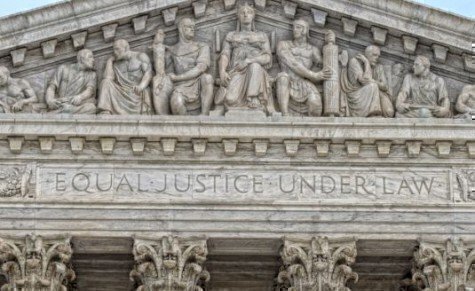 The Justices’ order contained no explanation, but said that the “ballot collection” ban will be in effect while the en banc Ninth Circuit Court considers a challenge to it by advocacy groups. That court has set a hearing on the dispute for mid-January.
The Justices’ order contained no explanation, but said that the “ballot collection” ban will be in effect while the en banc Ninth Circuit Court considers a challenge to it by advocacy groups. That court has set a hearing on the dispute for mid-January.
The legislative sponsors of the measure argued that it was necessary to prevent voter fraud. Its opponents said that it will fall heavily on Hispanic and Native American voters who have little transportation and no available secure mailboxes in cities or rural areas.
A similar law had been passed by the state legislature in 2011. At that time, Arizona was still required under the 1965 Voting Rights Act to get approval in Washington, D.C., for any changes in their election laws or procedures. The Justice Department refused to clear the measure without more information, but the sponsors they repealed the measure rather than risk having it blocked by the Department.
After the Supreme Court’s 2013 decision in Shelby County v. Holder, essentially ending the clearance requirement for the states covered by it, the legislature passed the bill anew. When that faced a possible referendum of the voters, it was repealed again. It passed again in March of this year.
The law treats any collection and delivery of another voter’s ballot as a serious felony, with punishment of up to a year in jail and a fine up to $150,000.
It is unclear how wide the impact of the Supreme Court’s order will be on voting in Arizona. Early voting began on October 12, but ended on Friday. But, if the law had remained blocked, advocacy organizations this weekend, on Monday and on election day Tuesday still could have helped voters get their ballots delivered by the close of voting at 7 p.m. (Arizona time) on Tuesday.
Although the Supreme Court did not explain why it was allowing the law to go back into effect, state officials in asking for that had relied heavily upon a 2006 decision by the Court in the case of Purcell v. Gonzalez that generally bars changes in election procedures close to an election.
The opponents, however, argued that the Ninth Circuit Court’s order against enforcing the collection ban would have no actual effect on election procedures. Their brief told the Court that county officials were not enforcing the law anyway, and that it would only introduce confusion for the Supreme Court to put the law back into effect by setting aside the Ninth Circuit Court’s action.
Legendary journalist Lyle Denniston is Constitution Daily’s Supreme Court correspondent. Denniston has written for us as a contributor since June 2011 and he has covered the Supreme Court since 1958. His work also appears on lyldenlawnews.com, where this article first appeared.





